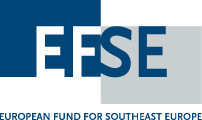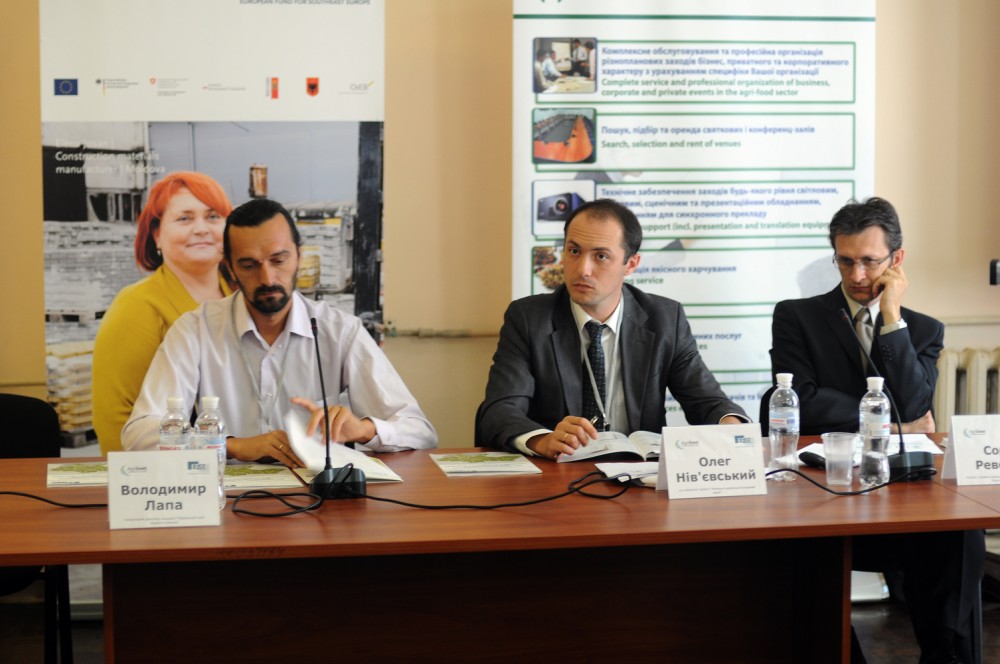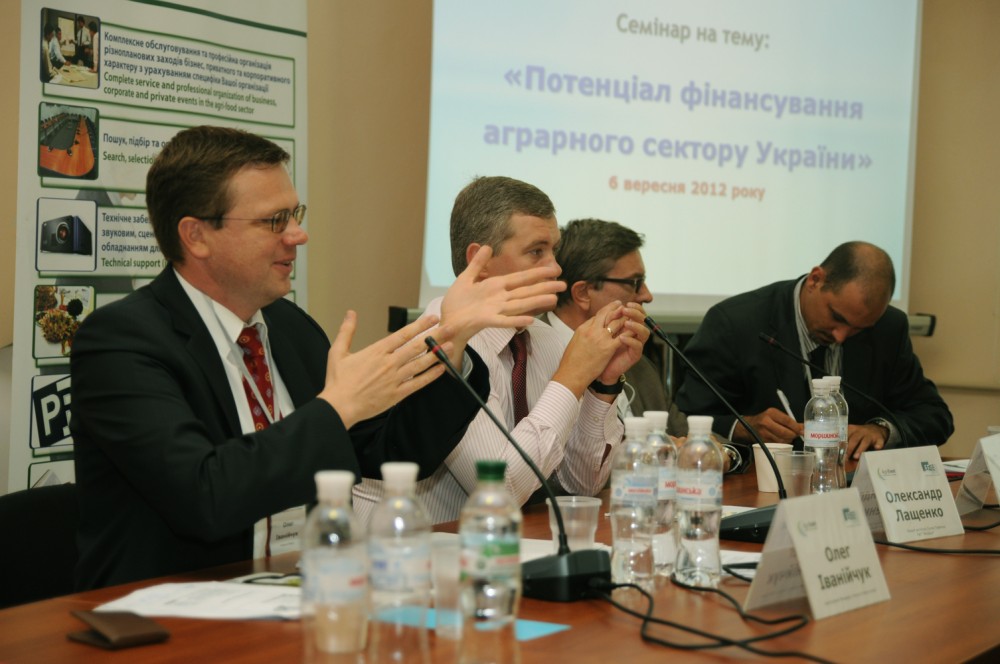Key representatives of the local financial services community and farmers were invited to participate in a workshop organised and hosted by the European Fund for Southeast Europe Development Facility. The purpose of the workshop was to explore the possibilities for the financial sector to better leverage the high potential of agriculture in Ukraine.
A comprehensive study commissioned by the EFSE Development Facility and recently published confirms the strong demand for adequate financial services to meet the needs of the large agricultural sector. The study also outlines possible solutions. Based on dedicated research, the study provides detailed insights into the current structure and main characteristics of the supply and demand sides of financial services in the Ukrainian agricultural sector. Moreover, the findings revealed that large scale agricultural production in particular is already well served by financial institutions, whilst the high number of smaller scale producers and processors lack adequate access to financial services.
(Link to English and Russian version of the study)
The event brought together over 70 representatives of the financial sector and Ukrainian as well as international experts in agricultural finance, think tanks and agribusiness association, and representatives from small and medium agricultural enterprises. After presenting the study’s findings and recommendations, the delegates engaged in a lively discussion on the challenges facing both financial services providers and farmers. The open discussion soon focused on solutions for the sustainable provision of financial services. Despite excellent agri-climatic conditions and the proximity to Black Sea ports, yield and productivity levels remain low in Ukraine. It is also a fact that, despite of its importance and role in the overall economy and as source of employment and its contribution to the GDP, the agricultural sector is still underserved by banks. The financial community continues to perceive agriculture as a risky sector even though it consistently outperformed Ukraine’s GDP curve over the past 7 years – and performed significantly better than the general economy through the severe crisis.
The consensus among workshop participants was that banks should continue to build capacity to better understand and adapt to the business opportunities offered by customers in the agricultural sector. This will enable financial services providers to further leverage their knowledge on agrilending and create attractive loan products for the sector. As the market develops, new players are likely to evolve toward agrilending and broaden their portfolio to address this market, including banks and leasing companies. Strategic alliances are to be expected, enabling innovative approaches such as value chain finance. In this context, the role of technical assistance and advisory services is crucial in guiding the process. Accordingly it was announced that the EFSE Development Facility stands ready to support with dedicated TA and research.
"Given the high development potential of Ukraine’s agricultural sector, broadening the offer of demand-oriented financial services to micro, small and medium-size farmers and food processors is an important goal. We are proud to have brought together the key representatives of the financial and agricultural sector to facilitate a discussion on the possible solutions, and to have provided a solid basis for sparking the discussion with the findings from our research†said Monika Beck, Chairperson of the Board of Directors of the EFSE. "As a Fund committed to Responsible Finance, we are particularly attentive to developments in this area and will continue to support the necessary improvementsâ€.
About the European Fund for Southeast Europe
The European Fund for Southeast Europe aims to foster economic development and prosperity in the Southeast Europe and South Caucasus region through the sustainable provision of long-term funding instruments to qualified partner lending institutions to better serve the financing needs of local micro and small enterprises (MSEs). Initiated by KfW Entwicklungsbank (The German Development Bank) on 15 December 2005 with the financial support of the German Federal Ministry for Economic Cooperation and Development (BMZ) and the European Commission, the EFSE is the first public-private partnership of its kind and the first privately managed fund in development finance to leverage private funding for MSE finance in the target region. Capital is provided by donor agencies, international financial institutions and private institutional investors, including the German Federal Ministry for Economic Cooperation and Development (BMZ), the European Commission (EC), the Government of Albania, Small and Medium Business Credit Support CJSC (SMBCS), a subsidiary of the Central Bank of Armenia, the Development Bank of Austria (Oesterreichische Entwicklungsbank - OeEB), the Swiss Agency for Development and Cooperation (SDC), the Danish International Development Agency (Danida), KfW Entwicklungsbank as Lead Investor, the International Finance Corporation (IFC), the Netherlands Finance Company (FMO), the European Bank for Reconstruction and Development (EBRD), the European Investment Bank (EIB), and Sal. Oppenheim and Deutsche Bank. Oppenheim Asset Management Services S.à .r.l, Luxembourg, and Finance in Motion GmbH, Germany, are, respectively, the EFSE’s Fund Manager and Fund Advisor.
The EFSE Development Facility is the technical assistance arm of the European Fund for Southeast Europe.
Media contact
EFSE
Christine Prütz
Tel.: +49 (0) 69 97 78 76 50 - 22
E-mail: c.pruetz@finance-in-motion.com



